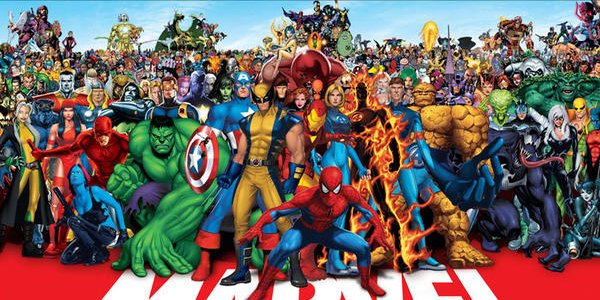Why Marvel Studios Shouldn't Rush To Include The X-Men And Fantastic Four

Your Daily Blend of Entertainment News
You are now subscribed
Your newsletter sign-up was successful
Marvel Studios has spent years teasing an ending and a new beginning for the Marvel Cinematic Universe -- but that concept has taken on a whole new meaning in the last couple of weeks. Fans have been forewarned about massive changes to the franchise caused by events that go down in the upcoming The Avengers: Infinity War and Avengers 4, but visions of what's possible became wholly different when it was revealed that the X-Men and Fantastic Four will soon be coming to play courtesy of the massive Disney-Fox merger.
Since then, even though the deal hasn't been fully finalized yet, there has been speculation about how the two teams could be initiated to the franchise as early as 2019... but that would be the wrong call. As exciting as it all is, and as much as we all want to see all the Marvel heroes finally come together, what would ultimately be best is for the Marvel Cinematic Universe to take its time with the A-list introductions and not just jump into something immediately.
This thesis is largely supported by the single most important thing that has allowed the Marvel Cinematic Universe to continue to thrive over the last decade: planning. The company took big risks announcing full slates and crafting larger arcs for the big screen franchise, and that structure has allowed them to not only craft impressive narrative through lines that are constantly developing, but also perpetuate their own success (with movie-goers constantly hungry for the next chapter). Working on the logical assumption that Marvel Studios hasn't known about this merger for years now, bringing in the X-Men and Fantastic Four would have to disrupt the plan, and it may just not be worth it.
Before the Disney-Fox merger, nobody was looking at the Marvel Cinematic Universe as a franchise running out of steam, because even without the X-Men and Fantastic Four the brand is as strong as they come. After Avengers 4 there will not only be sequel opportunities for beloved and hyped characters like Spider-Man, Doctor Strange, Black Panther, Captain Marvel, and the Guardians of the Galaxy, but also opportunities to introduce other new heroes from the thousands featured in the comics. There is no question that the brains at Marvel have spent the last three-plus years figuring out the best way to utilize all of these ingredients, and just because an incredibly appealing dessert is put on the menu doesn't mean that they should chuck out dinner.
In all of this one also can't forget about the plans being formulated by the X-Men franchise, which are exciting in their own right and shouldn't just be dismissed. For starters, while no firm plans have been announced, it's doubtful that X-Men: Dark Phoenix is being seen as a grand finale for the core series, given that director/producer Simon Kinberg has spoken about the ambition to catch the narrative up with modern day (it's been decade hopping since X-Men: First Class). The Deadpool franchise is only just starting to blossom, with not only Deadpool 2 on the way, but intentions to make both a Deadpool 3 and an X-Force feature. And then there are the other developing side projects, like The New Mutants and the long-delayed Gambit solo movie. A quick introduction to the Marvel Cinematic Universe would likely mean axing most if not all of that, and that's just leaving potential on the floor.
Some fans may be quick to point out that Marvel didn't exactly wait the last time this kind of opportunity was put in front of them -- specifically when the company made a deal with Sony Pictures to feature Spider-Man. In that case, the hero was quickly included in a movie that was already in production (Captain America: Civil War) and given a mid-slate solo film a year later. That situation, however, was different. In comparison to the X-Men there wasn't the conflict that comes with there already being a successful on-going franchise; and in comparison to the Fantastic Four there wasn't the immense negative big screen baggage that the brand holds. Those are situations that can't be simply skated around, and require consideration.
So if the Marvel Cinematic Universe doesn't immediately start to include X-Men and Fantastic Four characters in the canon, what's the solution? Once again it goes back to the MCU's greatest strength: they plan. With a new vision of what's possible, the heads at Marvel can start developing a big picture plan that goes a step beyond what they have figured out for post-Phase 3, and figure out the most epic possible way to finally bring every superhero together. It will require patience from both creatives and fans -- but would surely wind up developing the best results.
Your Daily Blend of Entertainment News

Eric Eisenberg is the Assistant Managing Editor at CinemaBlend. After graduating Boston University and earning a bachelor’s degree in journalism, he took a part-time job as a staff writer for CinemaBlend, and after six months was offered the opportunity to move to Los Angeles and take on a newly created West Coast Editor position. Over a decade later, he's continuing to advance his interests and expertise. In addition to conducting filmmaker interviews and contributing to the news and feature content of the site, Eric also oversees the Movie Reviews section, writes the the weekend box office report (published Sundays), and is the site's resident Stephen King expert. He has two King-related columns.
